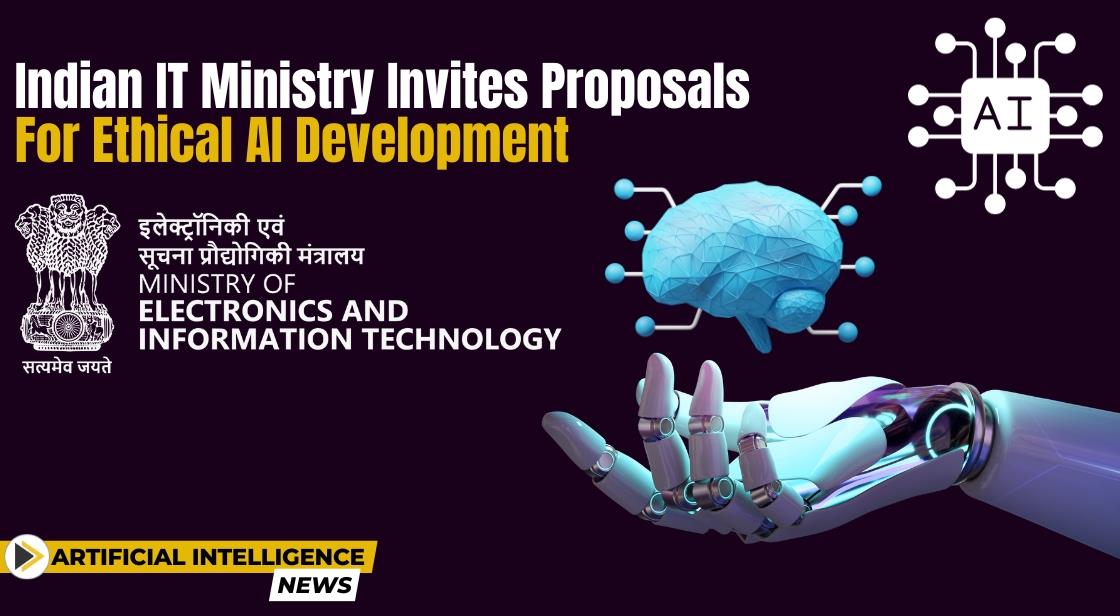Indian IT Ministry Invites Proposals for Ethical AI Development

News Synopsis
The Indian government's Ministry of Electronics and Information Technology (MeitY) has put forth a call inviting proposals from academic institutions and research organizations.
The objective is to cultivate indigenous "tools and frameworks" promoting ethical and just AI development. The proposal encompasses crucial themes like machine unlearning, fairness tools, bias mitigation strategies, and more.
Advancing Ethical AI Development
The proposal seeks to address critical aspects, including machine unlearning algorithms designed to rectify inaccuracies, biases, and outdated information within machine learning models. The removal of undesirable learned behaviors aims to foster accuracy, reliability, and fairness in AI systems across diverse domains.
Diverse Tools for Ethical AI
The MeitY proposal emphasizes the necessity for tools and frameworks catering to various facets of ethical AI. These encompass synthetic data generation, algorithm fairness, bias mitigation, ethical AI, and governance testing.
The proposal emphasizes addressing data gaps, ensuring privacy safeguards, and promoting equitable representation within AI systems.
Unveiling the Toolkit: Focus on Machine Unlearning and Synthetic Data
The proposal document outlines specific areas where these tools and frameworks are sought:
- Machine Unlearning: This technology allows AI models to "forget" outdated or inaccurate information, mitigating biases and promoting long-term accuracy.
- Synthetic Data Generation: By creating artificial datasets, developers can address data gaps and privacy concerns, fostering inclusivity and ethical data usage.
- Algorithm Fairness Tools: These tools help identify and rectify biases within AI algorithms, ensuring fair and equitable outcomes across diverse populations.
- Bias Mitigation Strategies: Techniques like data pre-processing and post-processing can be developed to proactively counteract potential biases in the training data.
- Ethical AI Frameworks: These frameworks provide guidance and best practices for responsible AI development, deployment, and governance.
Building Collaboration: Eligibility and Timeline
Government-run institutions like IITs, NITs, and IIITs, along with R&D and private academic organizations with dedicated AI infrastructure, are eligible to submit proposals. The deadline for submissions is January 12, 2024, with a completion timeline of two years.
Aligning with National AI Strategy:
This initiative aligns with India's National AI Strategy, which emphasizes responsible and ethical development of AI for social good. It aims to build trust and confidence in AI technology while ensuring its benefits reach all citizens.
The objective here is to refine AI systems, ensuring enhanced accuracy, reliability, and fairness across diverse sectors where AI is deployed.
Furthermore, the proposal underscores the imperative need for an array of tools and frameworks that bolster ethical AI. These encompass synthetic data generation, algorithm fairness, bias mitigation, ethical AI, and governance testing.
The focus remains on bridging data gaps, assuaging privacy concerns, and fostering inclusivity and fairness in AI systems.
Eligible institutions, including Indian Institutes of Technology (IITs), National Institutes of Technology (NITs), Indian Institutes of Information Technology (IIITs), and private academic organizations with requisite lab infrastructure, are encouraged to submit proposals.
The proposals should align with the overarching goal of promoting fair and ethical AI utilization and must be submitted to the ministry by January 12.
You May Like









